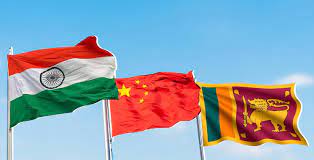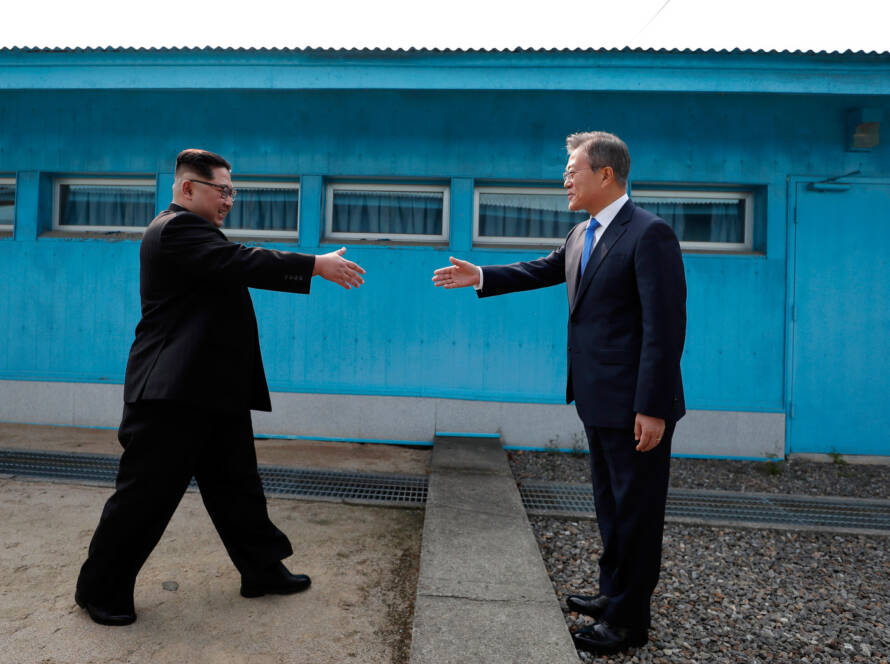By Uditha Devapriya and Zeenath Ayub
Barely 10 minutes after his appointment as Sri Lanka’s Prime Minister, US Ambassador to Sri Lanka Julie Chung congratulated Ranil Wickremesinghe on Twitter, emphasizing the need for political stability. Although the jury is still out on Mr Wickremesinghe and whether his appointment will pacify those asking for Gotabaya Rajapaksa’s resignation, there is a broad consensus that the country needs a proper administration. How this will impact the island’s economic issues remains to be seen, but the truth is that Sri Lanka can’t afford to go without a Prime Minister. The world will not wait for the country to get together.
Last week’s turns for the worse delayed negotiations over not just the IMF, but also bilateral assistance, including India’s eagerly anticipated credit lines. As one prominent newspaper reported in chilling detail, the Ceylon Petroleum Corporation may have to wait until next month to settle a payment of USD 70 million for some fuel shipments. With a bill of over USD 550 million per month, this means that the country lacks the reserves to back up even 10 percent of its fuel requirement. And this is in addition to never-ending gas queues, power cuts, and of course political deadlocks. Stability, therefore, is the need of the hour. And a large part of that will have to come from a restructuring of the country’s foreign policy.
The next 12 months are obviously going to be crucial. What will foreign policy have to look like in those 12 months? Almost immediately after his appointment, Mr Wickremesinghe met and discussed the situation with several ambassadors, including the British and the Japanese. While one newspaper reported that Japanese officials agreed in principle to a massive financial assistance package amounting to USD 4 billion, the cash is yet to come. The biggest priority for the government, therefore, would be to secure enough aid until it reaches a final deal with the IMF. Since this will take at least three months, the government will have to focus on obtaining urgently needed bridging finance.
Mr Wickremesinghe’s proposed international aid consortium fits in with these imperatives. Mr Wickremesinghe is, of course, no stranger to negotiating such proposals. In 2002, the then government, of which he was Prime Minister, entered into peace talks with the LTTE. Several rounds of negotiation later, the government organized a donor conference, where more than 20 countries pledged USD 4.5 billion (around USD 7 billion today) for the war-torn economy. The situation being arguably worse now than then, a donor conference, or aid consortium, may well help alleviate the country’s suffering.
This, however, requires a proper understanding of the situation in the country. The Prime Minister has promised to make a special statement on the economy. Given that Sri Lanka spent months denying there was a crisis in the first place, an honest, sober account may be what the doctor ordered, bringing the world up to date.
Speaking on condition of anonymity, a diplomat with decades of experience in foreign policy and administration told Factum that we would have to understand “that Sri Lanka is now projected in a very unfamiliar light.” He explained that “from being a model of Third World democracy, we have been reduced to a basket case.” Whether we like it or not, this is the new framework within which we will have to restructure our foreign relations.
There’s no doubt that Sri Lanka will have to establish credibility, with not just international lenders – a sine qua non of any successful IMF package – but also bilateral partners. When basic governance functions are seen to have failed, as they have in Sri Lanka over the last year or so, however, we will remain a “basket case.” As the veteran diplomat told Factum, governance deficits have assailed Sri Lanka for decades. One can argue that these failures have been with us since independence, yet there’s no denying that they have peaked under the present administration: a crisis of systemic proportions which requires that we maintain proper communication channels with ambassadors and diplomats.
How do we establish these channels? According to the diplomat, “Sri Lanka’s foreign policy establishment should no longer operate on a transactional basis.” Ad-hoc meetings and briefings, with representatives from even the most consequential, powerful countries, will not restore the confidence Sri Lanka needs from the world. What Sri Lanka needs is a more cohesive and long-term engagement with foreign missions. Although the diplomat did not specify on these engagements, he noted that “a more holistic perspective is required if we are to go ahead.” In other words, Sri Lanka must move beyond seeing Embassies as a means of survival. It has to think and plan beyond being a basket case.
Here, of course, Sri Lanka may be in a better position than may be assumed. Over the last two years, the country has established cordial relations with its regional partners, including India. Although engagements with Delhi alone will not do, Sri Lanka has much to benefit from relations with its neighbor. On the other hand, short-term policies and decisions have had a disastrous impact on relations with countries like Japan, and even China. What led to these turnrounds, devastating even by Sri Lanka’s standards of policy inconsistencies, should be assessed. Domestic pressures should never again be allowed to interfere with foreign relations, for the simple reason that we cannot afford such blunders.
In his meeting with the Prime Minister last week, the Japanese Ambassador appeared warm and forthcoming. Given the Japanese government’s (understandably bitter) response to the Rajapaksa government’s cancellation of the Light Rail Project, such developments are to be welcomed. They must, however, be capitalized. The way to do this is by demonstrating that Sri Lanka’s foreign policy establishment is interested not just in scrounging up money from foreign governments and donors, but also, more crucially, in forging friendships and inking agreements that stay in place despite changes of administrations.
Sri Lanka’s foreign reserves fell from USD 7 billion in 2020 to less than USD 100 million two years later. This should tell us two things: that the economy couldn’t withstand the crises that the COVID-19 pandemic and the Russia-Ukraine War unleashed, and that drowning in debt was never going to sustain us. Things had to fall apart, and they have.
To regain the confidence of the world, Sri Lanka hence has to show it can stand on its own. That requires reforms, which in turn require a plan, and not just for debt sustainability. Once it starts to deliver, the world will begin to respond. “This is an opportunity for us to develop a consensual approach to foreign policy,” the diplomat who spoke to Factum concluded. His ultimatum there was simple: if we don’t take the chance now, we never will.
Analysis by Uditha Devapriya, with input from Zeenath Ayub
Uditha Devapriya is the Lead Analyst – International Relations at Factum and can be reached at uditha@factum.lk. Zeenath Ayub is a student researcher at Factum and can be reached at zeenath@factum.lk
Factum is an Asia-focused think tank on International Relations, Tech Cooperation and Strategic Communications based in Sri Lanka accessible via www.factum.lk


